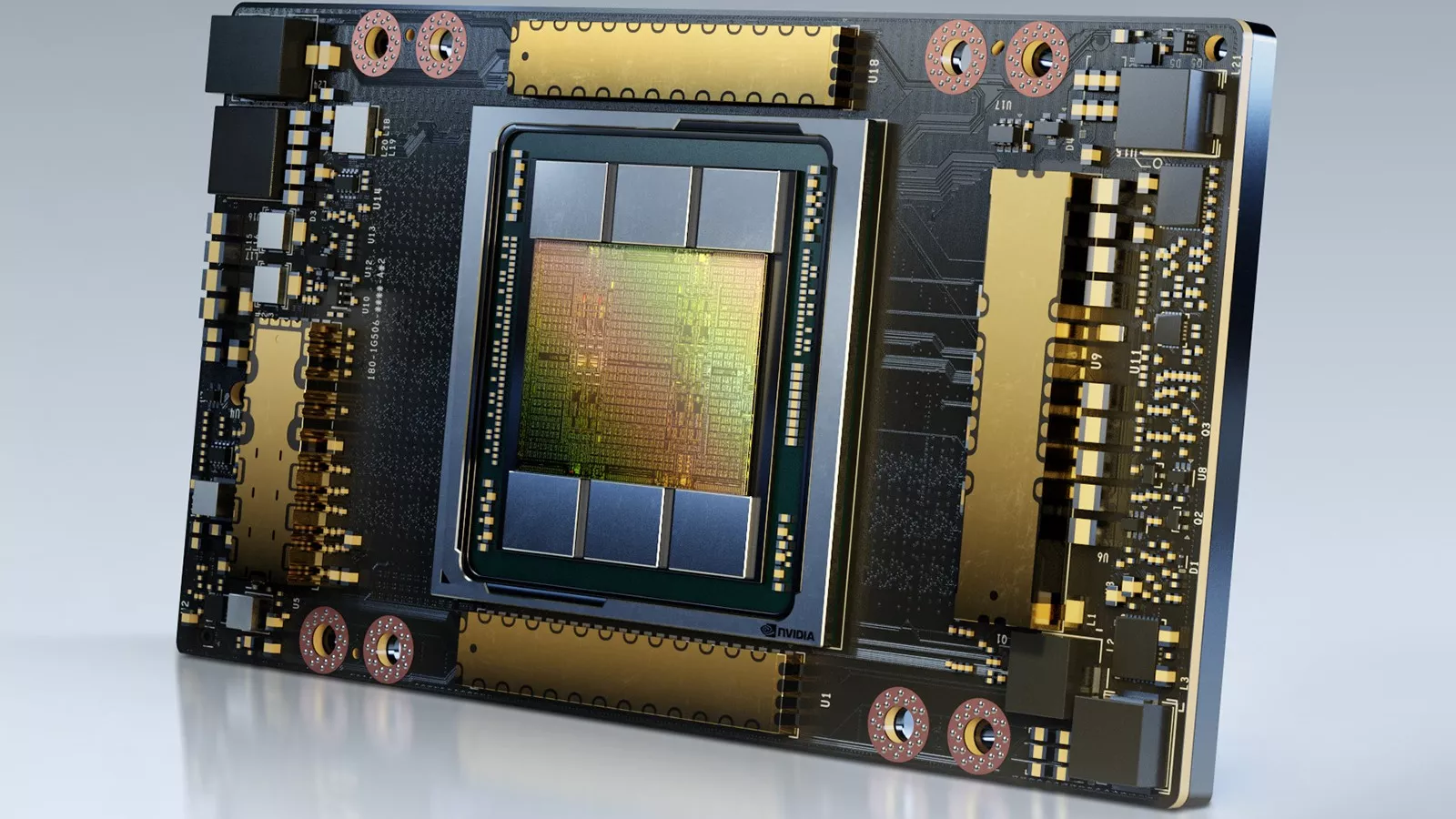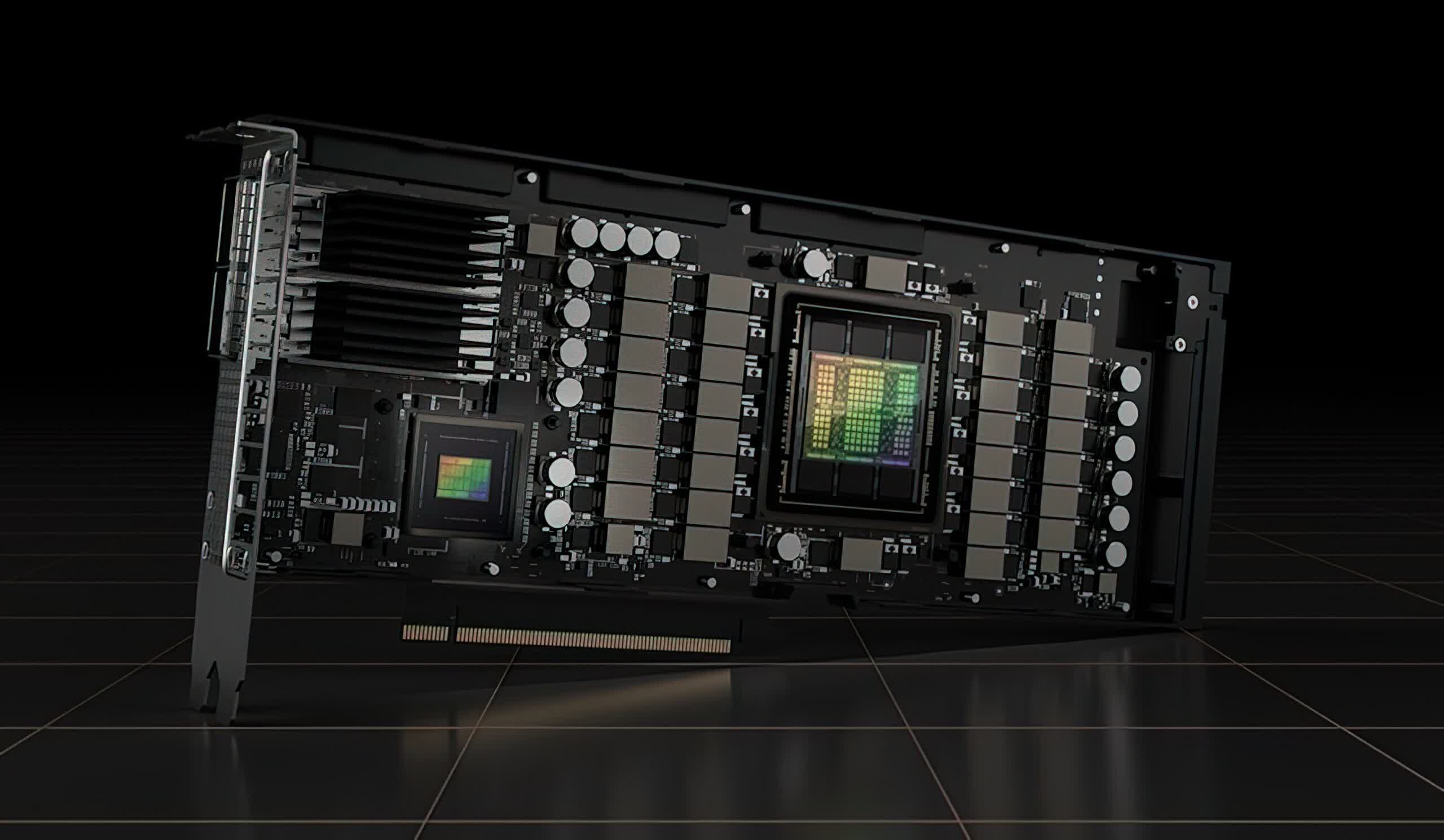In brief: The US government looks set to clamp down even harder on the export of AI-related products to China by taking steps to prevent chipmakers from circumventing current restrictions. The new rules include a ban on selling chips that fall just under the technical specification thresholds.
Citing people familiar with the matter, Reuters writes that the changes will be added to the restrictions on shipments of advanced chips and related tools to China this week.
Export rules for chips to China limit thier bidirectional transfer rate to 600 GB/s. It led to Nvidia nerfing the interconnect in the A100 from 600 GB/s to 400 GB/s so it could be sold to China as the A800. Team Green did the same thing with the H100, naming the less-powerful version the H800, and Intel followed suit by launching the new Habana Gaudi2 variant that complies with US restrictions.

The Nvidia A800 GPU
The new rules will block some AI chips that fall just under the current technical parameters while demanding companies report shipments of others. It's speculated that the interconnect speed limit could be reduced. An official stated that the US also plans to introduce a "performance density" parameter to help prevent future workarounds.
Sources previously said that Nvidia's H800 is one chip the Biden administration wants to block. There is no word on the A800, which Chinese companies like Alibaba have ordered in large quantities at a cost of billions of dollars.
The government will decide on a case-by-case basis whether chips just under the technical threshold pose a national security risk. They can be shipped unless the chipmaker is told otherwise.
An official said that consumer products like laptops would be exempt from the new rules. They are not expected to include restrictions on access to US cloud computing services, either.
The updated restrictions should also close a glaring loophole in which Chinese companies unable to buy the US chips and tools directly have simply purchased them using overseas subsidiaries.
In August, the US government introduced restrictions on the sale of high-end AI chips from Nvidia and AMD to some countries in the Middle East. The controls, covering the A100 and H100 GPUs, were put in place to stop the resale of the products to China.
https://www.techspot.com/news/100499-nvidia-h800-faces-potential-china-export-ban-us.html
